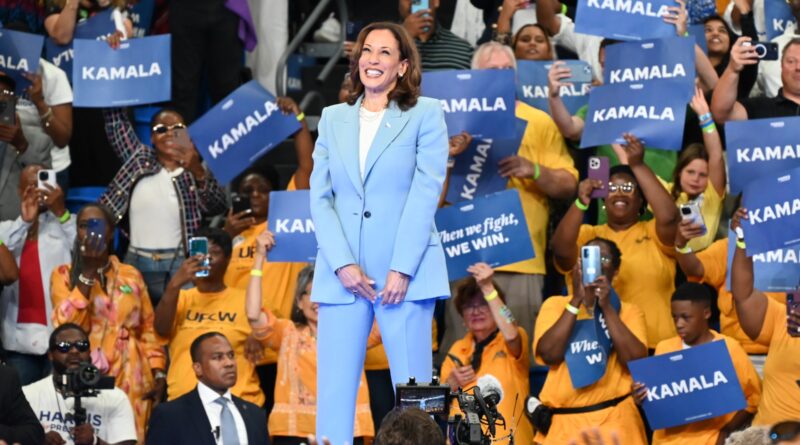Biden’s Misplaced Union Allegiance Sows Voter Discontent
As the Democratic Party grapples with its fading popularity, it’s becoming ruthlessly clear that relying on organized labor as a crutch might not be the best decision. The party, particularly Joe Biden and his administration, assumed that an unusually firm alliance with labor unions would work to their advantage. To their surprise, this approach only catalyzed the ebbing loyalty of working-class voters. The grim acceptance of this fact marks the collapse of their labor strategy, and leaves the party at the crossroads of two choices.
The progressive corner of the party argues that the failure to win back working-class voters only indicates that Biden wasn’t in their corner enough. This simplistic viewpoint pushes the narrative that Democrats must show more zeal in their support for unions. This seemingly ideological methodology, taken without a second thought, might be an attempt to simply appease the masses and avoid a broader discourse.
On the other hand, there’s a sensible group of Democrats who believe a return to the pre-Biden stance towards labor would be more beneficial. They’re wise to acknowledge that the servile catering to labor unions’ demands is politically expensive and yields diminishing returns. These political realists suggest that this blind allegiance to unions might be thwarting any efforts to deescalate the soaring cost of living, a paramount issue in today’s socio-economic climate.
The Democratic Party, indeed, has primarily been a pro-labor party since the days of the New Deal. However, there were boundaries in the relationship between the party and labor unions. While they advocated for the right to organize, increased minimum wage, and supportive social insurance laws, they occasionally curtailed union demands when the public interest was at stake.
Biden, however, embarked on a fundamentally different journey. He pledged to champion the labor unions in a way no predecessor had – to give them both a metaphoric and literal chair at every policy meeting, and to accommodate their demands wherever possible. His constant reaffirmations of allegiance to unions, unfortunately, sounded the death knell to his rapport with the working-class voters.
Perhaps nowhere was this more evident than in Kamala Harris’s eventual nomination. Having failed to secure key union endorsements, Harris may have won the majority of union households, but this couldn’t shield her from the visible swing towards Donald Trump, illuminating the ineffectiveness of the administration’s pro-union agenda.
Why did their operations fail to translate to electoral gains? The torrential swaying towards cultural matters like gun rights, immigration, and trans rights, as vote-determining issues, suggests a possible reason. An unexamined factor is the threat these pro-union policies pose to the material security of the working class.
Biden’s laundry list of concessions to unions had its price. He upheld the tariffs imposed by Trump, increased them on specific imports, and allowed stringent rules for domestic shipping and federal construction projects. These choices, while seemingly insignificant independently, collectively clashed with Biden’s declared aim of relieving economic inflation.
The massive problem posed by these choices is often overlooked. An example is a labor official in Nevada who lamented the party’s alienation from union members due to their failure to address affordability. Ironically, these short-sighted preferences aligned with Democratic objectives in the aftermath of the 2008 financial crisis, but didn’t consider the future ramifications on inflation and employment levels.
The abundance agenda, advocating for removing obstacles to ensure an improved standard of living, seems to be causing waves within the Democratic caucus. While not inherently against labor unions, this agenda has a clear conflict of interest with them, especially in instances pertaining to public-employee unions and housing construction.
The response to this call for a shift in Democratic policy has been met with fierce resistance. Hardcore union supporters and their progressive allegiants view this as another attack against the labor establishment. They insist on an absolute acceptance or rejection approach to union support, making any criticism appear hostile.
It’s worth remembering that despite Biden’s sacrifices to bail out the Teamsters’ pension fund, they still refused to endorse Harris. This begs the question of the efficacy of unconditional allegiance. To ignore trade-offs in policy-making, as appears to be the norm with Democrats, is equivalent to ignoring realities on the ground.
The Democrats’ experiment with a pro-union policy has, in short, proven a misadventure. Some will undoubtedly cling to the idea, in the hopes that it’d help appease their socially liberal voter base. But if one event has remained consistent, it’s the underperformance of this pro-union stance, evident in its failure to win over the working class.

